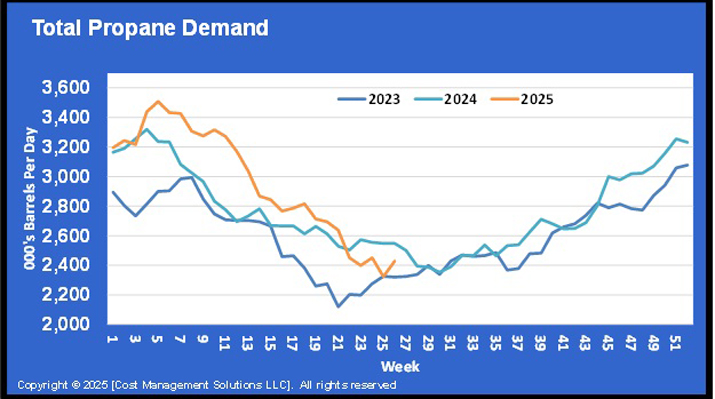DOE funding for vehicle technology shows ‘parity for propane’
Industry leaders are hailing Department of Energy (DOE) research funding totaling more than $9 million for vehicle technologies utilizing propane. They are also recognizing the years-long path to get LPG on an equal playing field with other energy sources in the top level of government.
“There’s been a concerted effort between PERC and NPGA to reengage with the Vehicle Technologies Office (VTO),” says Cinch Munson, senior vice president of business development at the Propane Education & Research Council (PERC). “PERC and NPGA coordinated our efforts well, and what we saw happen this year was the fruits of that labor.”
Six propane-related projects were part of DOE’s July pledge of $139 million for 55 projects selected to advance innovative vehicle technologies. The VTO, an Energy Efficiency and Renewable Energy office that supports research, development and deployment of efficient and sustainable transportation technologies, made the funding available to applicants in specific topic areas. But the annual appropriations process in Congress makes the funding possible.
“We have been working on this for several years to ensure there is parity for propane compared to other alternative fuels when it comes to research and development funding opportunities,” says Mike Caldarera, senior vice president of advocacy and technical services at the National Propane Gas Association (NPGA).
In its meetings with legislators charged with determining the levels of funding authorized for each agency, NPGA conveys the value and environmental benefits of propane and highlights potential projects where the funds could be used, Caldarera says.
The amount awarded for propane-related projects in fiscal year 2020 – $9,017,921 – nearly doubled the $5 million the industry received in appropriations funding for propane engine technology in 2016.
That initial success in 2016 was followed by a “mixed bag of results for a variety of reasons in subsequent years,” says Caldarera, who credits Michael Baker, director of legislative affairs at NPGA, and his legislative colleagues for building a comprehensive strategy to address the appropriations process on Capitol Hill.
“Rather than this being a one-off thing, annual lobbying on appropriations for the propane industry is now built into our overall lobbying strategy on Capitol Hill,” Caldarera adds.
With NPGA efforts primarily focused on the legislative side, Munson says PERC works to stay visible and engaged with the DOE, national and private laboratories, as well as engine and vehicle manufacturers about propane’s potential for clean transportation. Those partnerships lead companies and organizations to funding opportunities.
“We’re already starting to talk to people now for next year,” Munson says. “We suspect there will be opportunities for propane again. It’s a year-round effort to stay engaged and build the coalitions and the concepts that result in the successful projects.”
Here are details of the six propane-related projects under three areas of interest:
Improved efficiency of medium- and heavy-duty natural gas and propane (LPG) engines
Colorado State University – Fort Collins, Colorado
- Project: Development of Advanced Combustion Strategies for Direct Injection Heavy Duty Propane Engines to Achieve Near-Diesel Engine Efficiency
- Amount: $3,450,085
UT-Battelle dba Oak Ridge National Laboratory – Oak Ridge, Tennessee
- Project: Stoichiometric Spark Ignition Propane Engine with Diesel Efficiency Parity
- Amount: $1,549,915
Alternative fuel proof-of-concept in new communities and fleets
Denver Metro Clean Cities Coalition – Arvada, Colorado
- Project: Delivering Clean Air in Denver: Propane Trucks and Infrastructure in Mail Delivery Application
- Amount: $500,000
Technology integration open topic
Roush Industries – Livonia, Michigan
- Project: Waste Not, Want Hot? A More Sustainable Way to Keep Buses Warm. It will develop and demonstrate a propane-powered cabin heating system for battery electric buses.
- Amount: $1,353,658
Roush Industries and Roush CleanTech worked collaboratively to develop the proposal. The goal of the project, the company says, is to address a growing market need for alternatives to diesel-fueled auxiliary heaters in the medium- and heavy-duty electric vehicle spaces.
West Virginia University Research Corp. – Morgantown, West Virginia
- Project: VoICE-MR: Vocation Integrated Cost Estimation for Maintenance and Repair of Alternative Fuel Vehicles (AFV)
- Amount: $1,085,682
Transportation Energy Partnership – Washington, D.C.
- Project: Helping America’s Rural Counties Transition to Cleaner Fuels and Vehicles
- Amount: $1,078,581
Featured photo by LP Gas staff
















